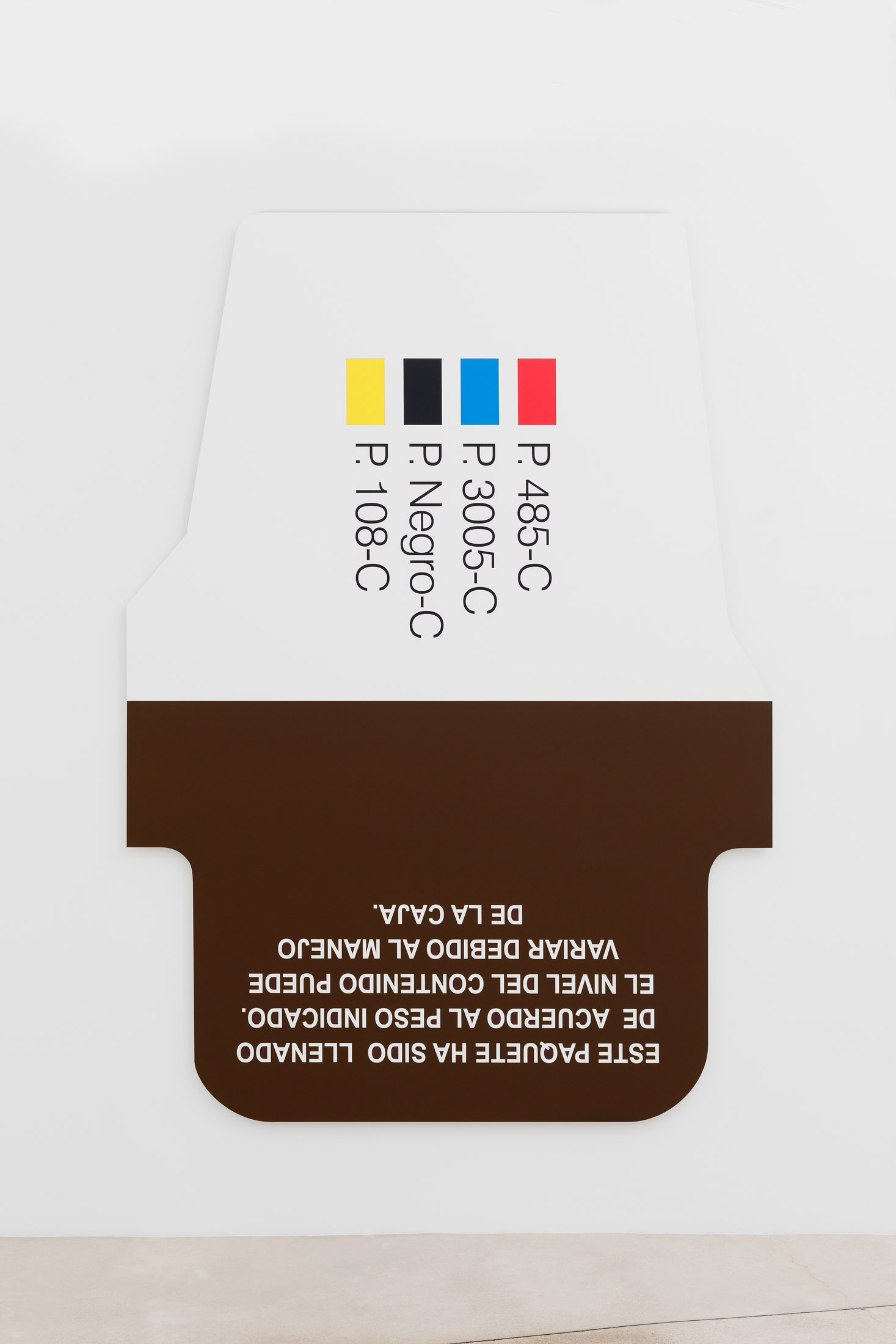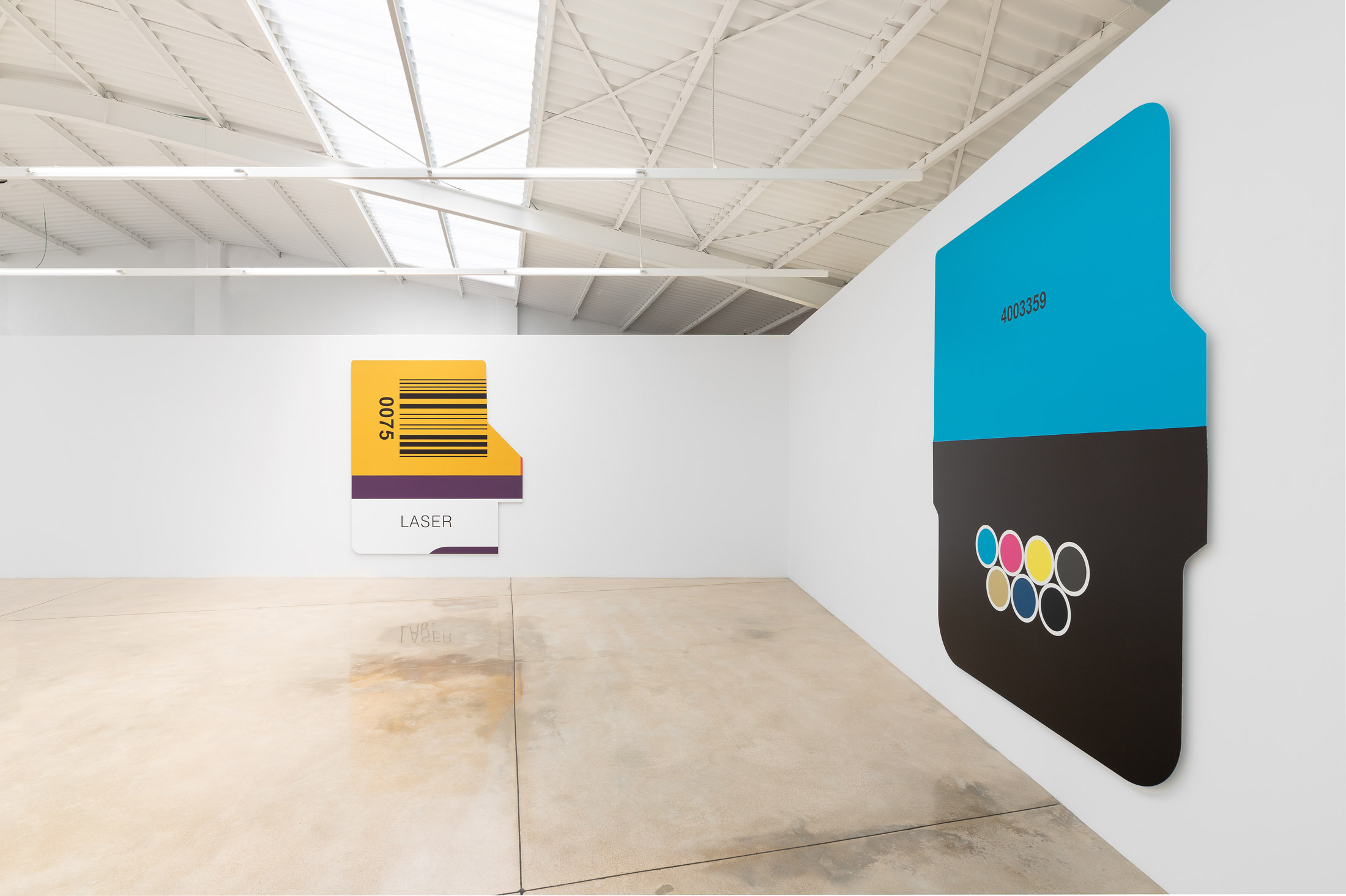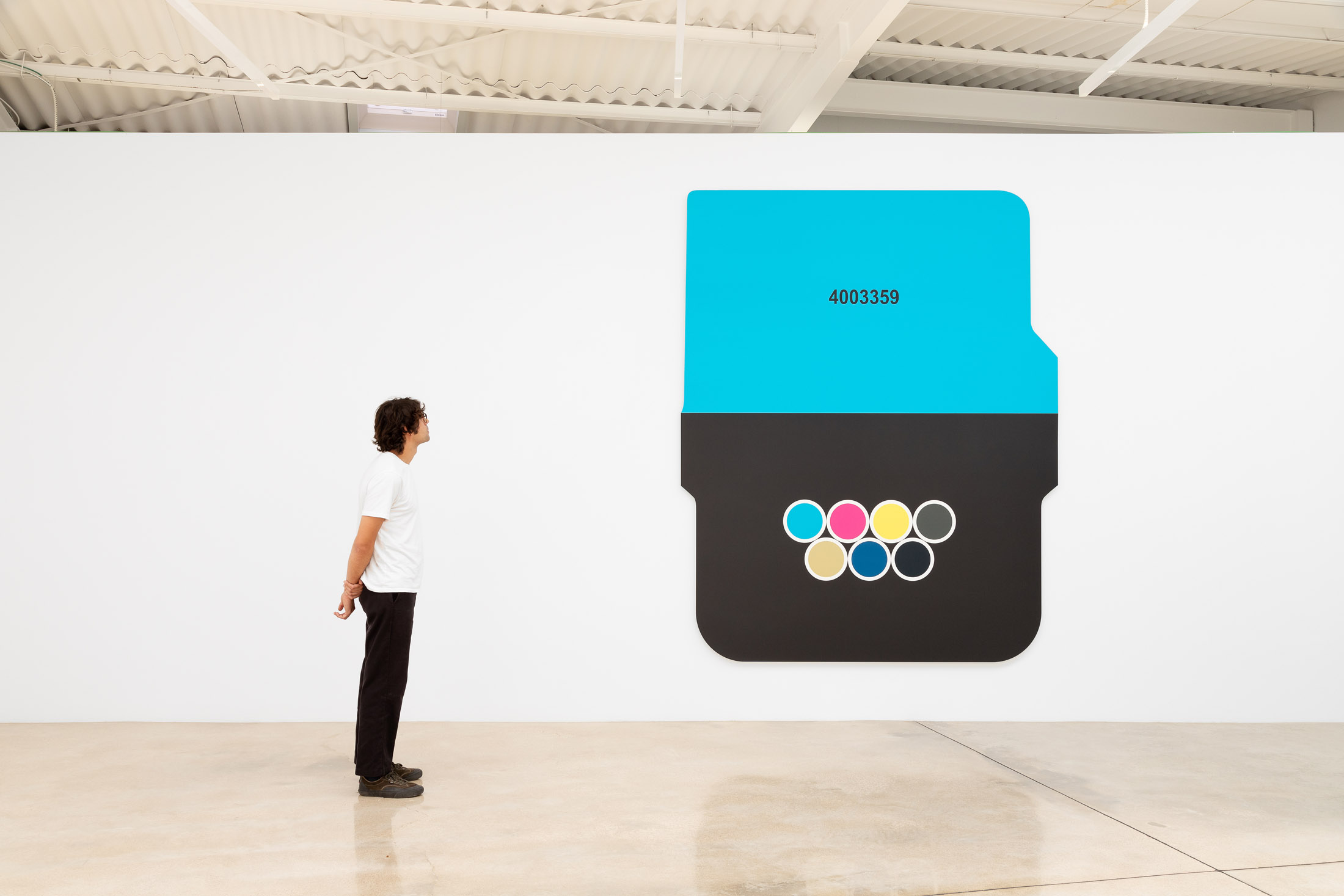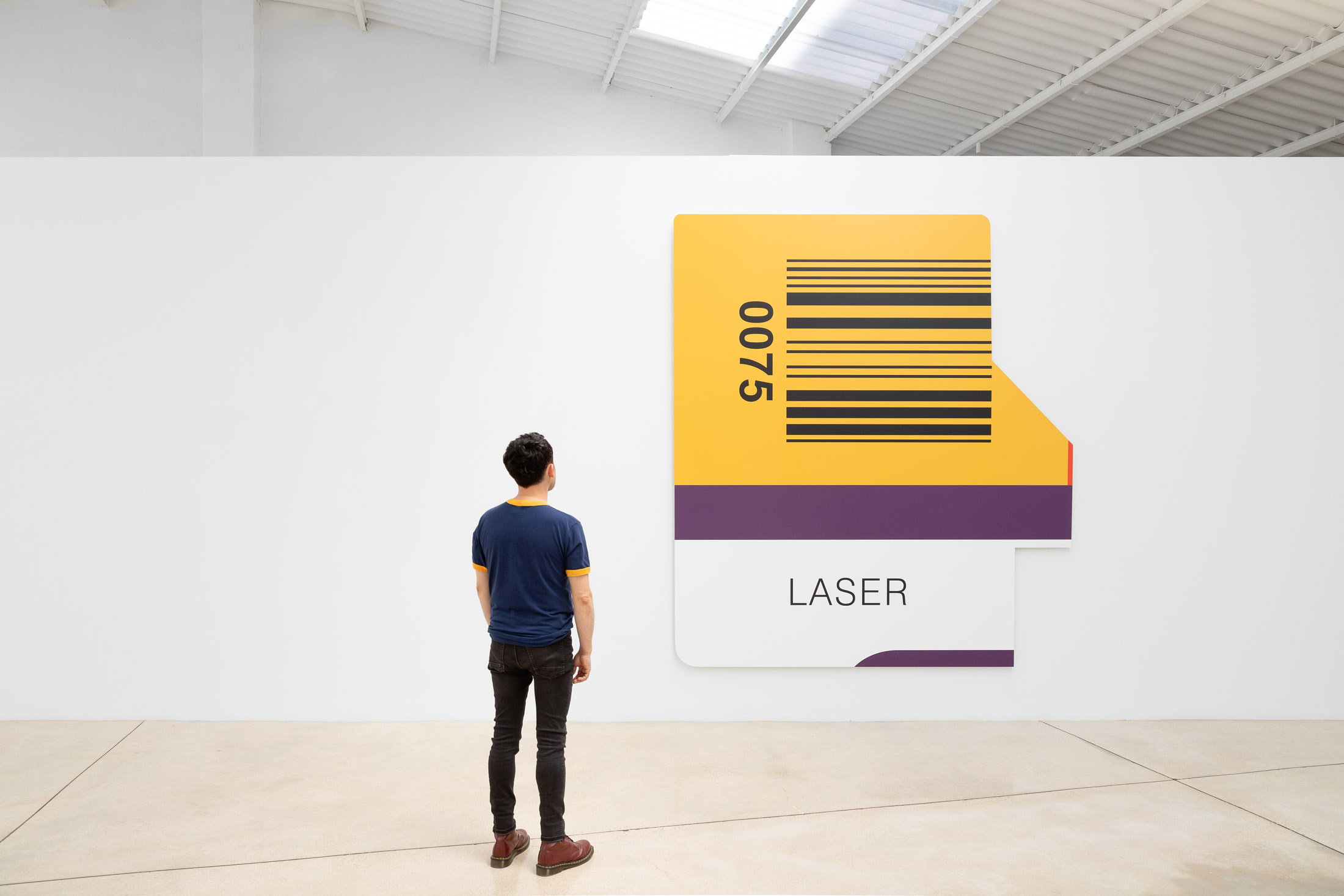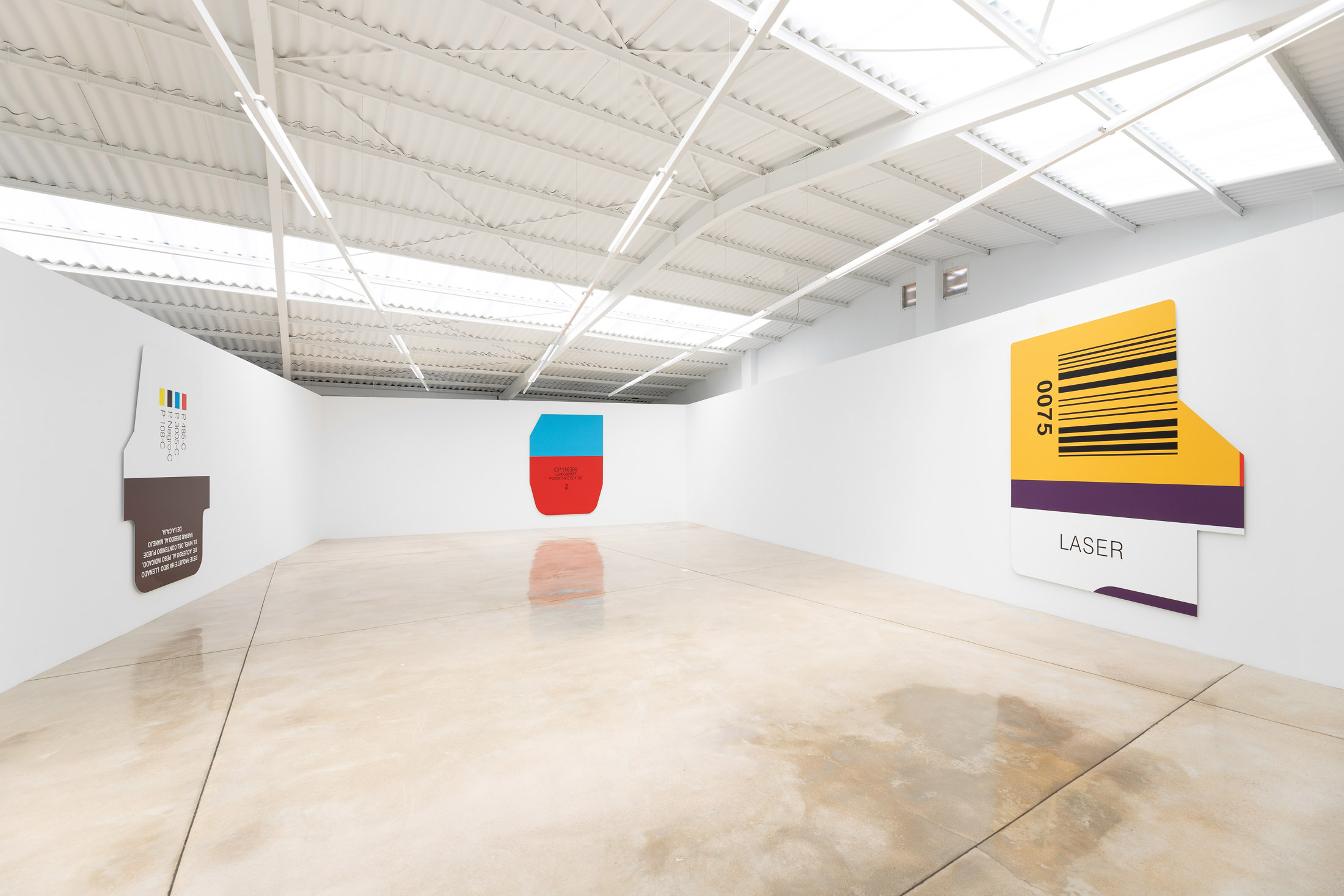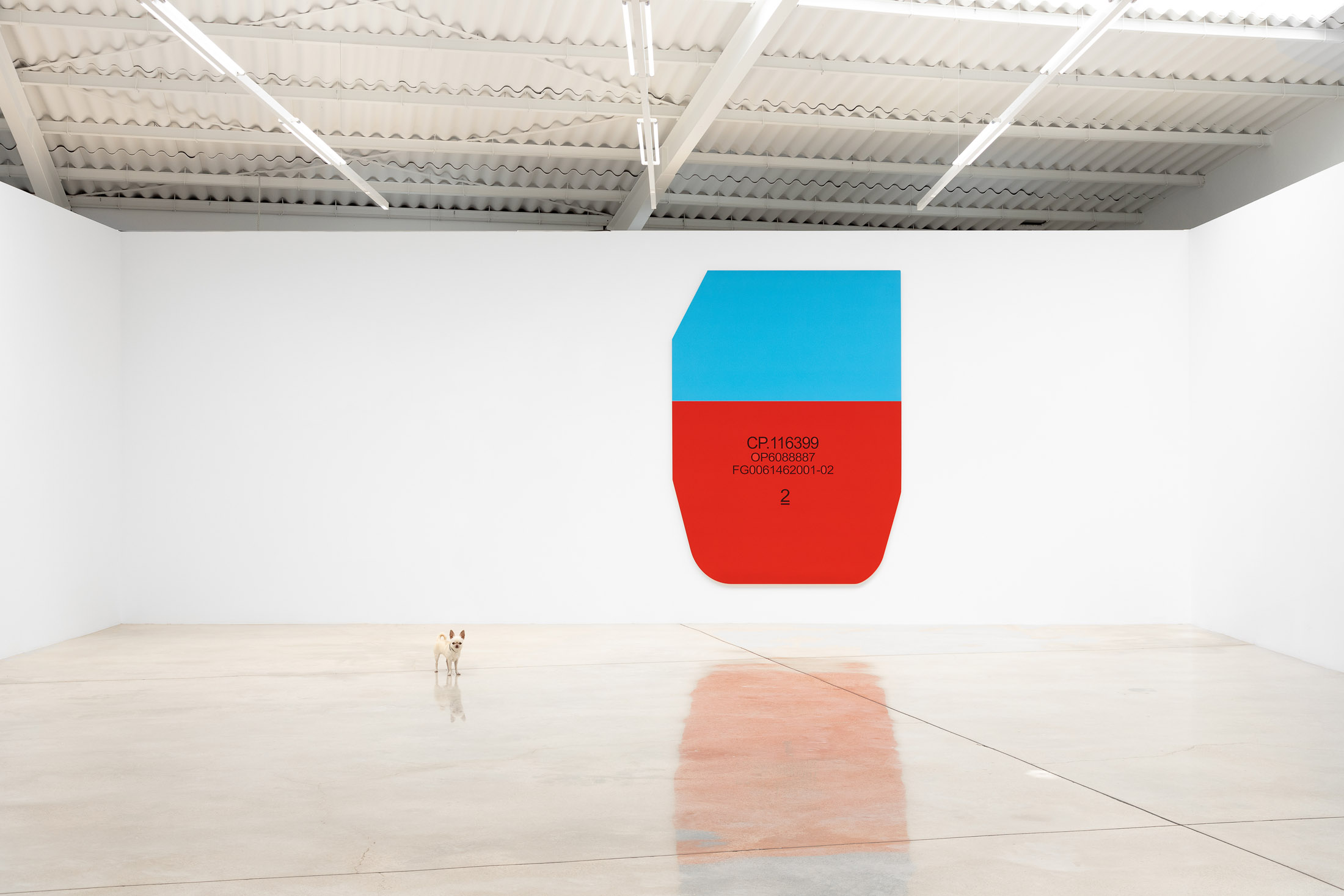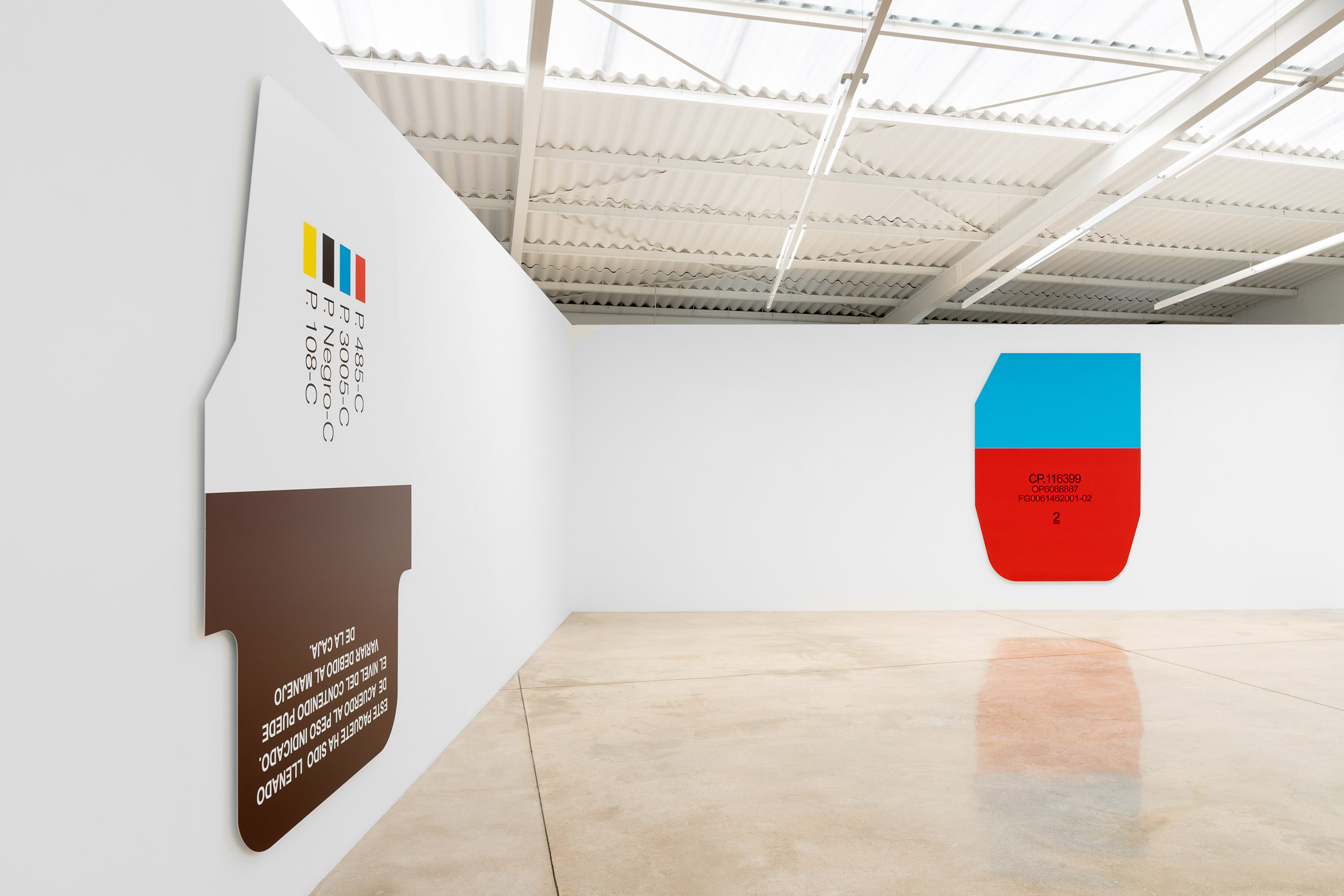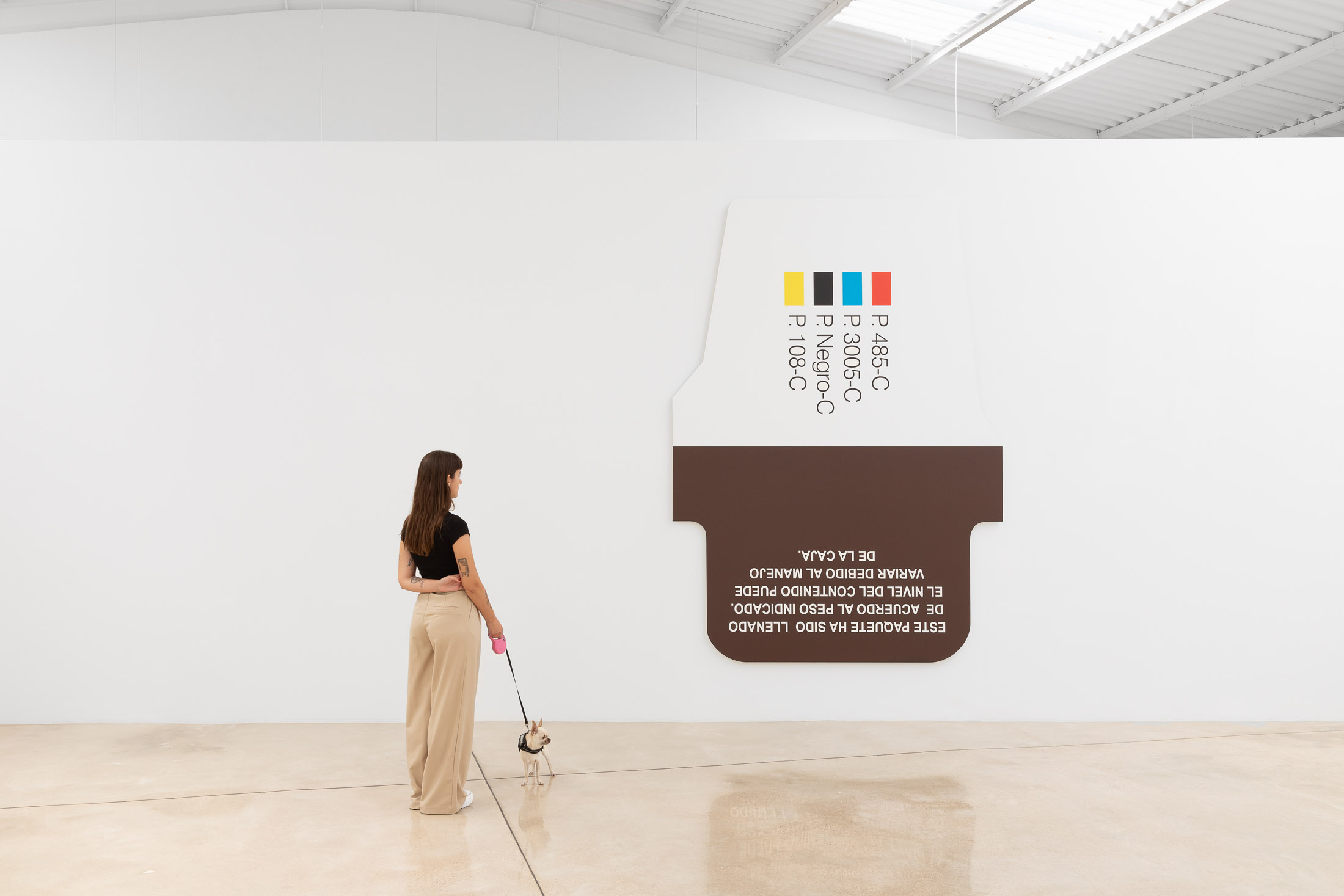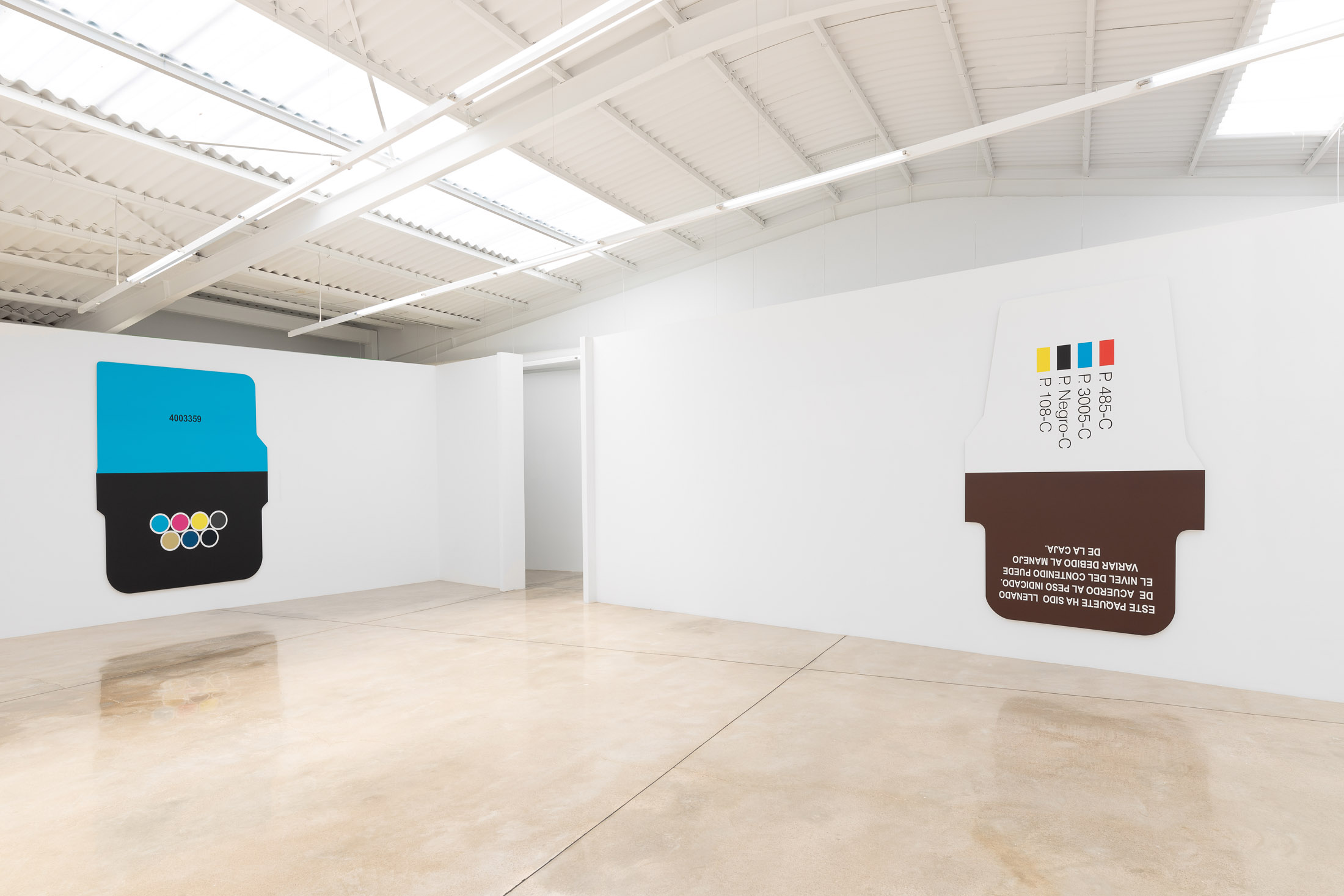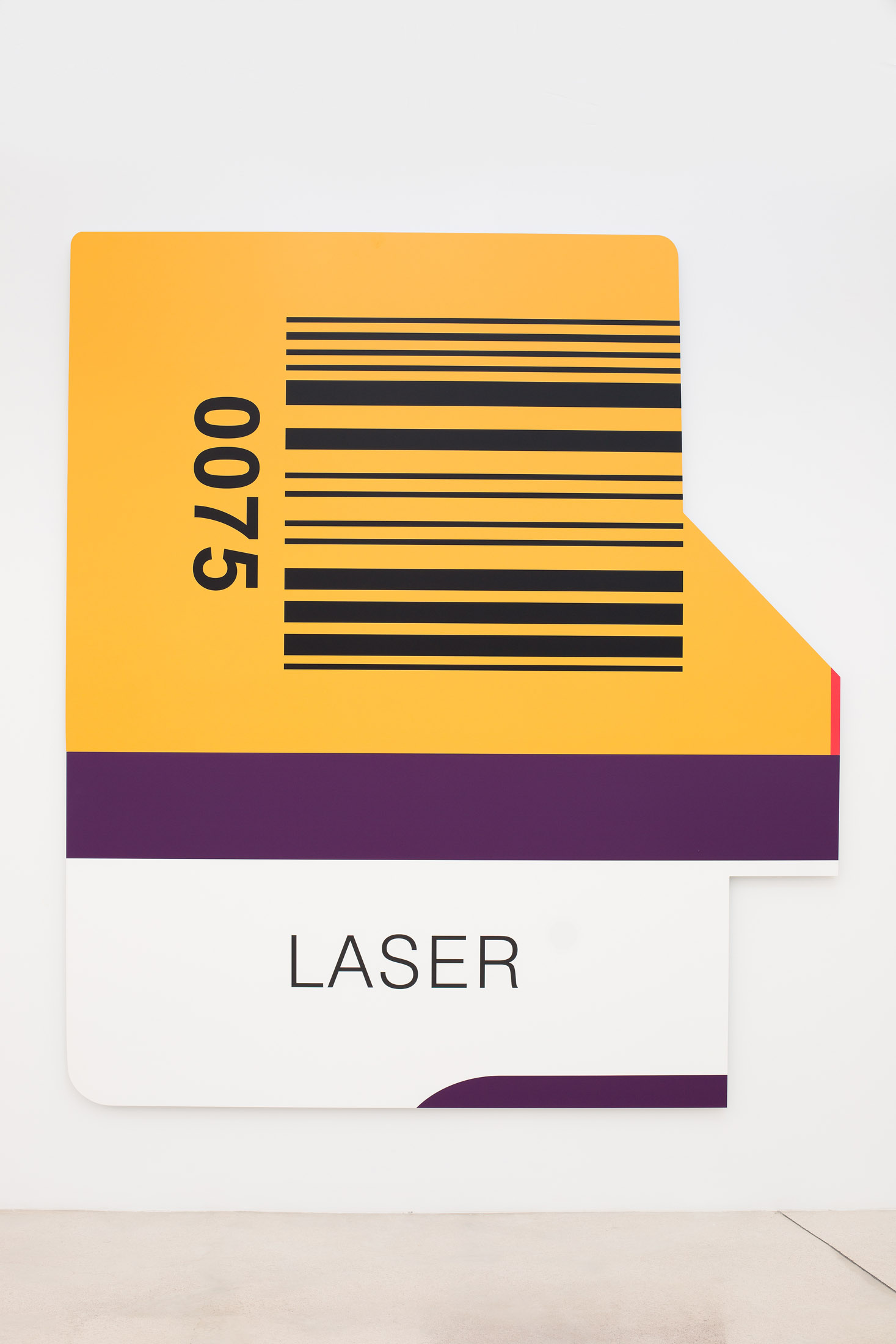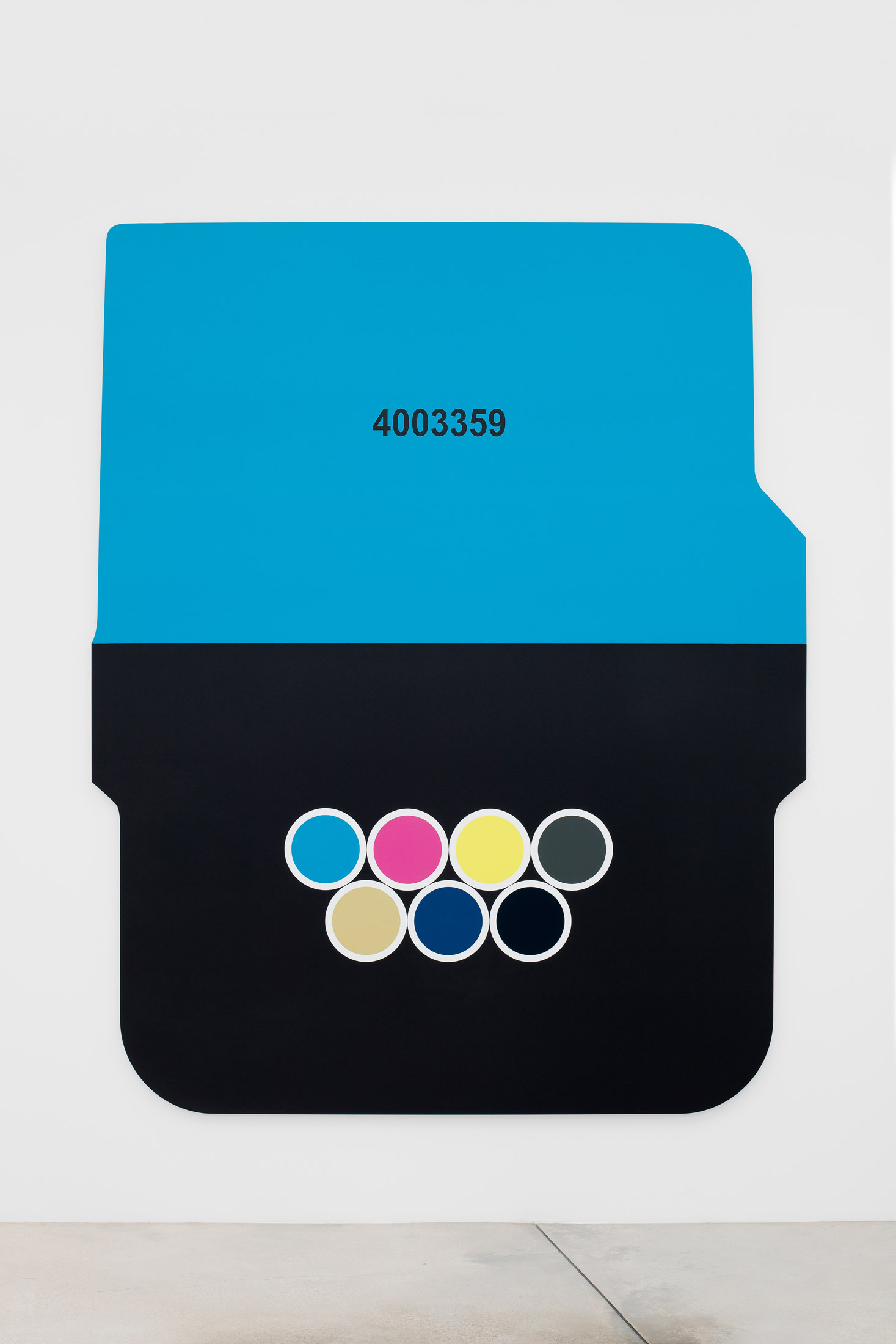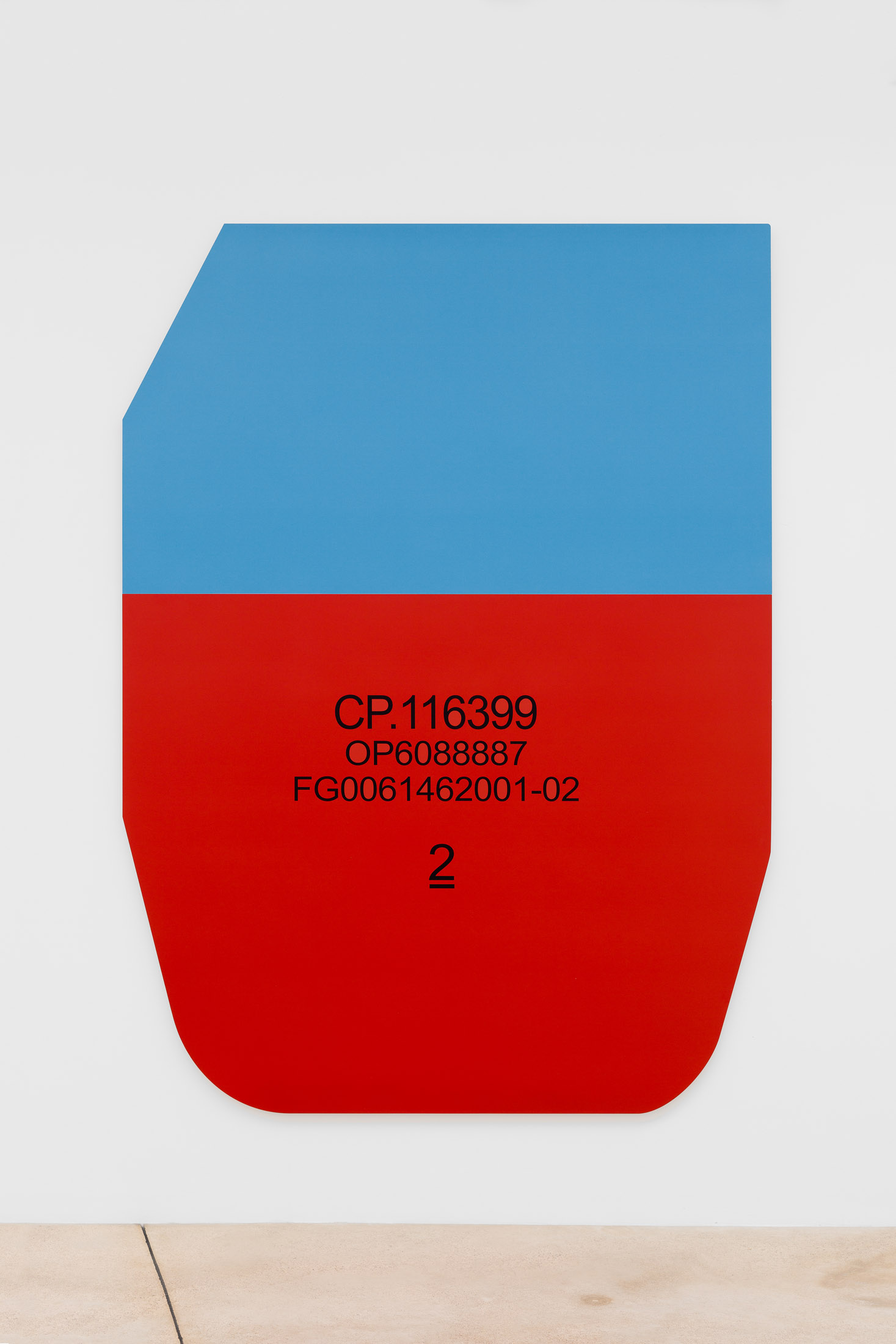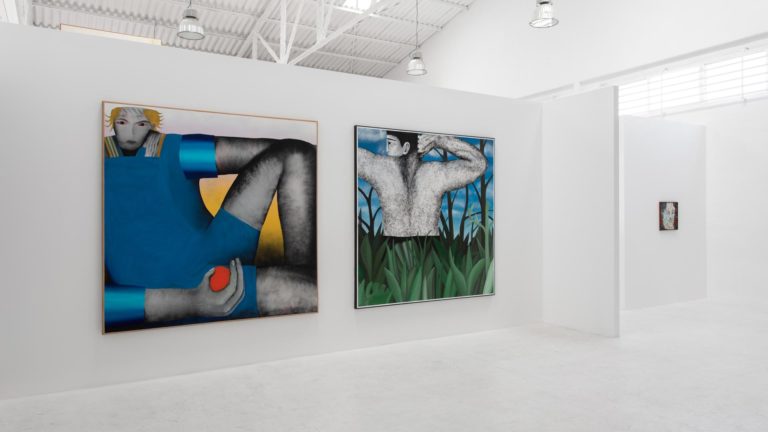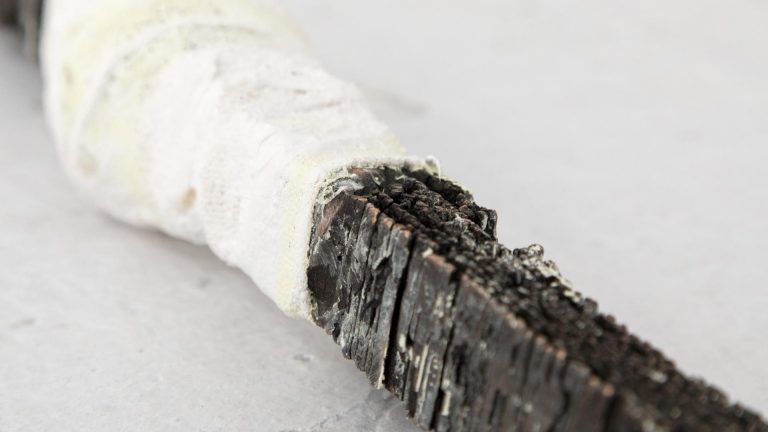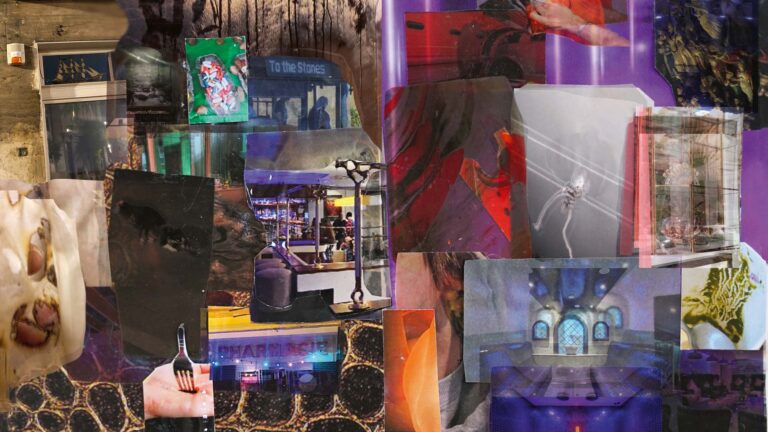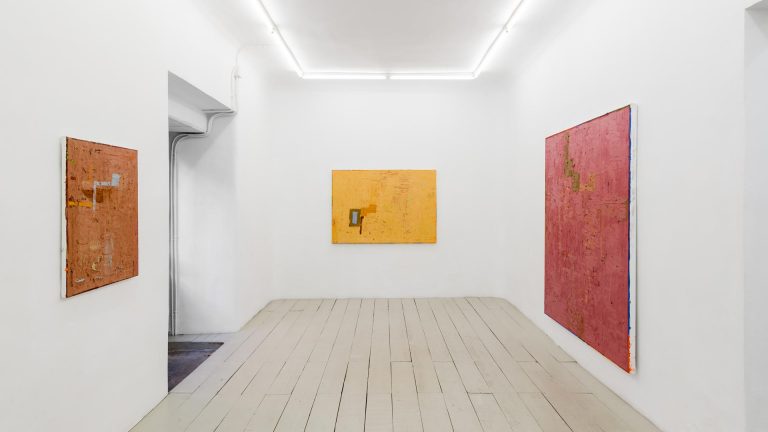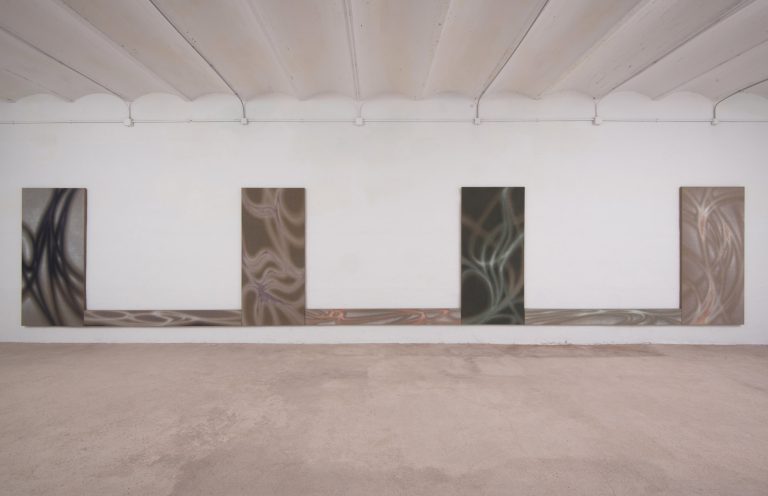Artist: Alejandro Leonhardt
Exhibition title: UNBOXING
Venue: L21 Gallery, Mallorca, Spain
Date: June 8 – September 6, 2023
Photography: Juan David Cortés / all images copyright and courtesy of the artist and L21 Gallery, Mallorca
“UNBOXING” is the action of taking a product out of its box or packaging to show it to the public, mainly through a video on YouTube or social media. The usual narrative requires getting in front of or behind the camera and starting to unpack the product, showing each and every one of the elements contained in the box. The success of unboxing videos is due to two factors: the raise of expectations and being emotionally infected by joy or empathy.
“UNBOXING” is the title of an exhibition that uses this word as a poetic resource, unpacking -metaphorically- the universal meaning of this action. The works that make up “UNBOXING” bring together on a large scale, the relationship of two products, of two wrappings, specifically, of two flaps, which establish unity as an image by association. Thus, each work connects two goods to form a shape, a totality reduced to colours, graphics, and codes, giving clues, and at the same time misleading as to their origin.
Each work takes its title from the product contained in the box from which they were extracted. For example: “UNBOXING #5: powdered gelatine and antidepressant”. They also take their format and materiality in correspondence to advertising systems, always complicit in the persuasive economy of signs.
—
What to add to the words that Alejandro Leonhardt has chosen to talk about his new project at L21 Gallery… Perhaps a superficial layer that, like a box, protects them and makes them rub up against other surfaces, other references that we have been sharing throughout the process, and that in turn connect his practice.
Let’s start from the outside, from the macro-political, macro-economic and geographical sphere that surrounds this project that emerged as an idea in 2020. Hence, it emerged from reflections in times of coronavirus restrictions, when the only connection with the outside world and its products was through the goods we received at home that led us to collect countless boxes and wrappings. For many, the interdependence of everyone and everything with everything became more present than ever. From this involuntary and abrupt standstill, the need for us all to come together became more palpable, as well as our vulnerability. We are all in “the same boat” as Rudy Gnutti proverbially told us in his 2016 film. It is also possible that it generated a greater reflection on invisible labour within industries, to which artist and theorist Allan Sekula gave visibility through his photography.
Leonhardt’s flaps are a way of looking at these mechanisms through magnifying lens: from the extraction of raw materials to the hands of the consumer, devoured by haste and voracious desire. An analysis that shrinks into an insignificant object, while it expands, and offers us a sublime vision of a portion of anodyne everyday life, amplified to the maximum possible extent. Perhaps just like the market does with its goods… always exposed to the free market souffle.
The uselessness and the possibility of, through his projects, treating objects as encounters with a certain power, has been the modus operandi of Leonhardt’s entire artistic trajectory. The flaps made to serve the purpose of keeping and supporting a content meet at their base, leaving their primary utility aside. They are a mockery of their own functionality, becoming an element of pure contemplation, equally useless but more pleasurable, moving from a tactical enjoyment to a visual one. But in this new proposal by Alejandro, there is also a significant change in his work. He has moved from a collecting, classificating, and ordering (and resignificating) dimension to add another layer to his process through the transformation and production of elements that escape from standard repetition. In such way, he places himself in the creation of unique units, which accumulate all those previous steps, work, and consequent value.
Moving a little closer, we can lose ourselves in its cheerful colours. We can even get carried away by its attractive forms and proportions, a clear reference to the flat painting of conceptual abstraction by artists such as Olivier Mosset, Carmen Herrera, Imi Knoebel, Ellsworth Kelly, Jac Leirner, Blinky Palermo or Michael Majerus. But they also hint to the billboards’ power of attraction, to good design, or, simply, to colour on a more psychological level. And we connect with it quickly. We couldn’t avoid it even if we tried to. Our retinas are coded to be immediately seduced, like the “Brillo Box”.
The analytical minds will enjoy exploring the connotations of the different meanings of the word “box” in any etymological or general dictionary. We have stumbled upon the famous and dreaded Pandora’s box, capable of unfolding the worst evils of our world, here in the form of the vast number of signifiers connected to this series of works.
Therein lies the role of the beloved public that establishes, or not, whether to keep the work sealed or open it up. The first option implies thinking about it for its inherent visual enjoyment, while the latter dismantles and unfolds everything that the work can offer, in the form of known truths or ideas that expand how we understand our position in the world.
Because politics are made from the most intimate and personal part of our existence.
-Beatriz Escudero

